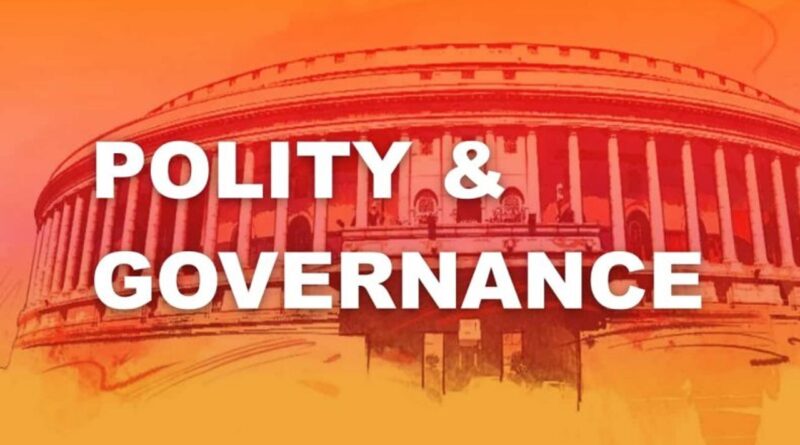UPSC Polity Notes PDF: Best Political Science Notes For UPSC IAS Based on M Lakshmikant Book
Best Approach to Create UPSC Polity Notes (Based on M. Lakshmikanth)
1. Divide the Book into Key Themes:
-
The M. Lakshmikanth book is comprehensive and detailed. To make notes, break it down into logical sections:
-
Constitution of India
-
Federal Structure
-
Separation of Powers
-
Fundamental Rights
-
Directive Principles of State Policy
-
President, Parliament, Judiciary
-
Governance, Local Bodies, and Elections
-
2. Read and Highlight Key Points:
-
Read through each chapter carefully and highlight key points. Use a highlighter for important facts, articles, landmark cases, and important dates.
-
Focus on important topics like:
-
Articles and their significance (e.g., Article 368 – Amendment of the Constitution)
-
Key amendments (e.g., 42nd, 44th, and 73rd Amendments)
-
Important constitutional provisions (e.g., the Right to Equality, Right to Freedom)
-
Specific historical events (e.g., Emergency Provisions under Article 352)
-
3. Write Concise, Bullet-Point Notes:
-
After reading each chapter, write concise notes summarizing the key points. Use bullet points for easy revision and clarity.
-
Example:
-
Article 368: Powers to amend the Constitution
-
Procedure for amendment
-
Significance of the Basic Structure Doctrine (Kesavananda Bharati Case)
-
-
4. Create Mind Maps & Diagrams:
-
Use mind maps and flowcharts to visually represent complex ideas like the Federal Structure, Amendment Process, and Powers of the President. Visual aids will help you recall concepts during revision.
-
For example, create a flowchart of the Powers of the President or the Procedure for Impeachment.
5. Incorporate Current Affairs:
-
Make a section in your notes for current political events or developments that relate to the Polity syllabus. Link recent Supreme Court judgments, Parliamentary debates, and constitutional amendments with the chapters of Lakshmikanth.
6. Practice with Previous Year’s Questions:
-
Once your notes are ready, practice by solving previous year’s questions from both Prelims and Mains. This will help you understand the kind of questions that are asked and ensure that your notes cover all critical areas.
How to Get the UPSC Polity Notes PDF:
If you’re looking for ready-made UPSC Polity Notes based on M. Lakshmikanth’s Book, here’s what you can do:
1. Official Websites:
-
Check on platforms like InsightsIAS, ForumIAS, or BYJU’s. These websites provide downloadable PDFs of Polity notes that are often aligned with the syllabus.
2. UPSC Preparation Forums:
-
Websites like IASBABA, Civilsdaily, and Mrunal offer comprehensive Polity notes PDFs prepared by experienced educators and students. You can find these on their official sites or Telegram channels.
3. Online Course Providers:
-
Unacademy, StudyIQ, and Khan Academy provide downloadable resources, including Polity notes. Some of these are free, while others are available via subscription.
4. Download from Public Libraries:
-
Some online public libraries or Google Drive links shared by other aspirants may have downloadable Polity notes PDFs. You can search on forums like r/UPSC or Quora.
5. Create Your Own PDF:
-
Based on your notes and understanding from M. Lakshmikanth, you can create your own Polity PDF using tools like Microsoft Word, Google Docs, or Notion. These tools allow you to easily convert your notes into a well-organized, downloadable PDF format.
Key Topics from M. Lakshmikanth’s Book for UPSC Polity Notes:
To make sure your notes cover the critical points for UPSC preparation, here’s a list of must-read chapters and topics from M. Lakshmikanth:
-
Historical Background of the Constitution
-
Making of the Constitution
-
Preamble of the Constitution
-
Salient Features of the Indian Constitution
-
Union and its Territory
-
Citizenship
-
Fundamental Rights
-
Directive Principles of State Policy
-
Fundamental Duties
-
Amendment of the Constitution
-
Union Executive (President, Vice President, Prime Minister)
-
Parliament (Lok Sabha, Rajya Sabha, Parliamentary Procedures)
-
State Executive (Governor, CM, Council of Ministers)
-
Judiciary (Supreme Court, High Courts, Judicial Review)
-
Local Government (Panchayats, Municipalities, 73rd and 74th Amendments)
-
Election System (Election Commission, Lok Sabha, Rajya Sabha Elections)
Final Tip:
For the UPSC Mains, ensure that your Polity notes are conceptually clear and concise. Practice writing answers regularly to improve your answer-writing speed and ensure that you’ve covered all relevant case laws, articles, and constitutional provisions.
I hope this helps you in preparing your UPSC Polity Notes effectively! If you have any more questions or need assistance with specific chapters, feel free to ask.

